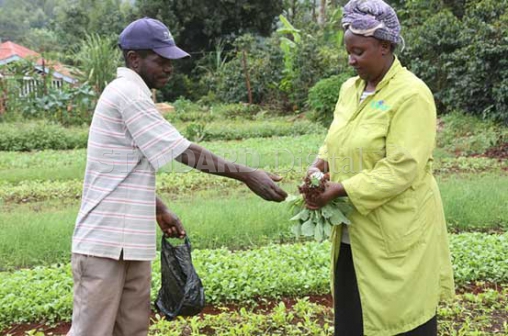×
The Standard e-Paper
Stay Informed, Even Offline

Majority of people assume that to start a rewarding agribusiness venture, you need a big seed capital. Let’s say Sh10,000, Sh20,000 or maybe Sh5,000. But one farmer in Nyeri is proving that even with seed capital as small as a mustard seed you can make it happen.
“Believe it or not, I started with just Sh20 that my husband had given me. Now that small seed has grown into this massive seedlings project,” Caroline Waruguru tells Smart Harvest at her farm in Kariguini, Tetu Constituency.